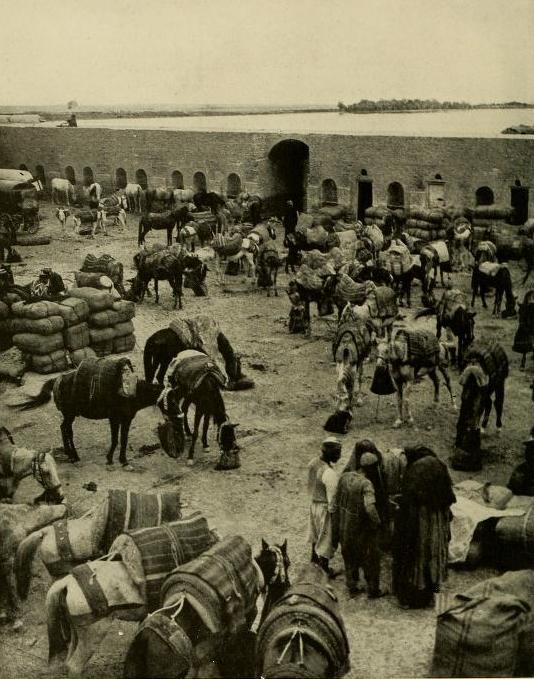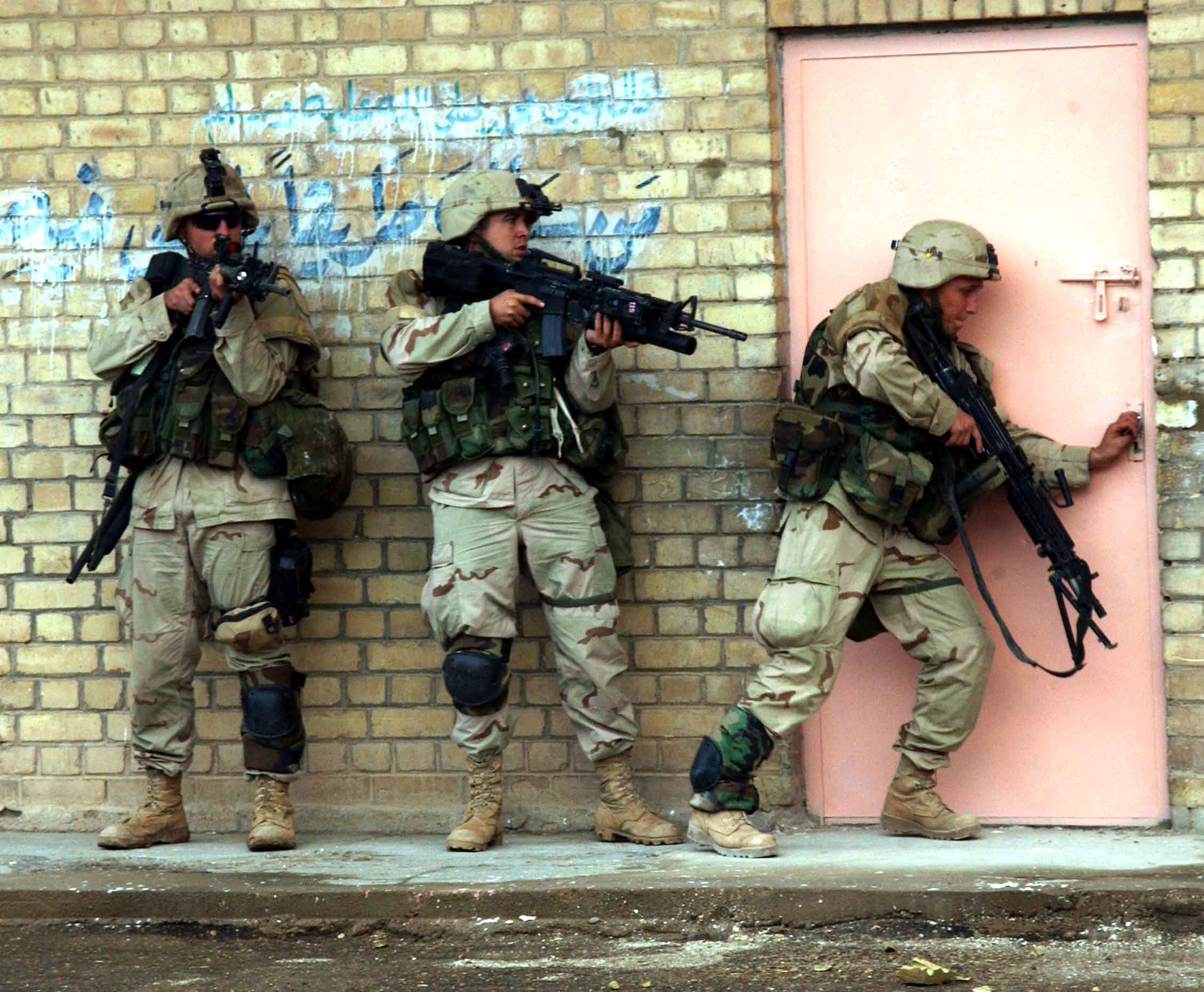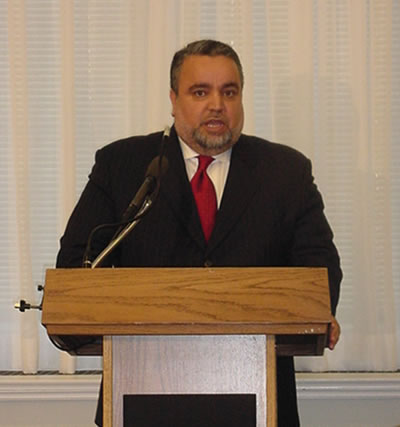|
Iraqi Islamic Party
The Iraqi Islamic Party is the largest Sunni Islamist political party in Iraq as well as the most prominent member of the Iraqi Accord Front political coalition. It was part of the government of Prime Minister Nouri al-Maliki and is part of the current government of Haider al-Abadi since 2014. Osama Tawfiq al-Tikriti succeeded Vice-President Tariq al-Hashimi as the party's secretary-general on 24 May 2009, who was succeeded in July 2011 by Ayad al-Samarrai. The IIP evolved out of the Muslim Brotherhood movement, and was banned from 1961 during Iraqi nationalist rule, something which continued throughout the reign of the Pan-Arab Ba'ath Party right up to the invasion of Iraq in 2003. Like the Muslim Brotherhood, the IIP's religious rather than ethno-political ideology made the party systematically incompatible under the Iraqi governments between 1961 and 2003. [...More Info...] [...Related Items...] OR: [Wikipedia] [Google] [Baidu] |
Islamic Democracy
There exist a number of perspectives on the relationship of Islam and democracy among Islamic political theorists, the general Muslim public, and Western authors. In 2021, a number of Muslim majority countries are Islamic and secular democracies. Many Muslim scholars have argued that traditional Islamic notions such as ''shura'' (consultation), ''maslaha'' (public interest), and '' ʿadl'' (justice) justify representative government institutions which are similar to Western democracy, but reflect Islamic rather than Western liberal values. Still others have advanced liberal democratic models of Islamic politics based on pluralism and freedom of thought. Some Muslim thinkers have advocated secularist views of Islam. A number of different attitudes regarding democracy are also represented among the general Muslim public, with polls indicating that majorities in the Muslim world desire a political model where democratic institutions and values can coexist with the values and p ... [...More Info...] [...Related Items...] OR: [Wikipedia] [Google] [Baidu] |
Invasion Of Iraq
The 2003 invasion of Iraq was a United States-led invasion of the Ba'athist Iraq, Republic of Iraq and the first stage of the Iraq War. The invasion phase began on 19 March 2003 (air) and 20 March 2003 (ground) and lasted just over one month, including 26 days of major combat operations, in which a combined force of troops from the United States, the United Kingdom, Australia, and Poland invaded Iraq. Twenty-two days after the first day of the invasion, the capital city of Baghdad was captured by Coalition forces on 9 April 2003 after the six-day-long Battle of Baghdad (2003), Battle of Baghdad. This early stage of the war formally ended on 1 May 2003 when President of the United States, U.S. President George W. Bush declared the "end of major combat operations" in his Mission Accomplished speech, after which the Coalition Provisional Authority (CPA) was established as the first of several successive transitional governments leading up to the first January 2005 Iraqi parliame ... [...More Info...] [...Related Items...] OR: [Wikipedia] [Google] [Baidu] |
January 2005 Iraqi Legislative Election
Parliamentary elections were held in Iraq on 30 January 2005 to elect the new National Assembly, alongside governorate elections and a parliamentary election in Kurdistan Region. The 275-member legislature had been created under the Transitional Law during the international occupation. The newly elected body was given a mandate to write a new constitution and exercise legislative functions until the new constitution came into effect. The elections also led to the formation of the Iraqi Transitional Government. The United Iraqi Alliance, tacitly backed by Shia Grand Ayatollah Ali al-Sistani, emerged as the largest bloc with 48% of the vote. The Democratic Patriotic Alliance of Kurdistan was in second place with 26%, whilst interim Prime Minister Ayad Allawi's party, the Iraqi List, came third with 14%. In total, twelve parties received enough votes to win a seat in the assembly. Low turnout amongst Sunni Arabs threatened the legitimacy of the elections, with voter turnout as ... [...More Info...] [...Related Items...] OR: [Wikipedia] [Google] [Baidu] |
The Iraqis
Iraqis ( ar, العراقيون, ku, گهلی عیراق, gelê Iraqê) are people who originate from the country of Iraq. Iraq consists largely of most of ancient Mesopotamia, the native land of the indigenous Sumerian, Akkadian, Assyrian, and Babylonian civilizations, which was subsequently conquered, invaded and ruled by foreigners for centuries after the fall of the indigenous Mesopotamian empires. As a direct consequence of this long history, the contemporary Iraqi population comprises a significant number of different ethnicities. However, recent studies indicate that the different ethno-religious groups of Iraq (Mesopotamia) share significant similarities in genetics, likely due to centuries of assimilation between invading populations and the indigenous ethnic groups. Iraqi Arabs are the largest ethnic group in Iraq, while Kurds are the largest ethnic minority, Turkmens are the third largest ethnic group, while other ethnic groups include Yazidis, indigenous Assyr ... [...More Info...] [...Related Items...] OR: [Wikipedia] [Google] [Baidu] |
United States
The United States of America (U.S.A. or USA), commonly known as the United States (U.S. or US) or America, is a country primarily located in North America. It consists of 50 states, a federal district, five major unincorporated territories, nine Minor Outlying Islands, and 326 Indian reservations. The United States is also in free association with three Pacific Island sovereign states: the Federated States of Micronesia, the Marshall Islands, and the Republic of Palau. It is the world's third-largest country by both land and total area. It shares land borders with Canada to its north and with Mexico to its south and has maritime borders with the Bahamas, Cuba, Russia, and other nations. With a population of over 333 million, it is the most populous country in the Americas and the third most populous in the world. The national capital of the United States is Washington, D.C. and its most populous city and principal financial center is New York City. Paleo-Americ ... [...More Info...] [...Related Items...] OR: [Wikipedia] [Google] [Baidu] |
Fallujah
Fallujah ( ar, ٱلْفَلُّوجَة, al-Fallūjah, Iraqi pronunciation: ) is a city in the Iraqi province of Al Anbar, located roughly west of Baghdad on the Euphrates. Fallujah dates from Babylonian times and was host to important Jewish academies for many centuries. The city grew from a small town in 1947 to having a population of 275,128 inhabitants in 2011. Within Iraq, it is known as the "city of mosques" for the more than 200 mosques found in the city and the surrounding villages. The city became a major center of resistance against the Iraqi government during the Iraqi insurgency and the city was the scene of fierce fighting during the First and Second Battles of Fallujah. These battles left much of the city heavily damaged. In January 2014, the city was captured by the Islamic State and suffered major population loss. On 23 May 2016, Iraqi forces announced the beginning of their attempt to retake Fallujah from IS. On 26 June 2016 the city was declared fully l ... [...More Info...] [...Related Items...] OR: [Wikipedia] [Google] [Baidu] |
Operation Phantom Fury
The Second Battle of Fallujah, codenamed Operation al-Fajr ( ar, الفجر, ) and Operation Phantom Fury, was an American-led offensive of the Iraq War that lasted roughly 6 weeks, starting 7th November, 2004. Marking the highest point of the conflict against the Iraqi insurgency, it was a joint military effort carried out by the United States, the Iraqi Interim Government, and the United Kingdom. Within the city of Fallujah, the coalition was led by the U.S. Marine Corps and U.S. Army, the battle was later described as "some of the heaviest urban combat U.S. military have been involved in since the Battle of Huế City in Vietnam in 1968".Ricks, Thomas E. (2007). ''Fiasco: The American Military Adventure in Iraq, 2003–2005''. Penguin. p. 399. . Operation Phantom Fury was the second major coalition effort in Fallujah. Earlier, in April 2004, coalition forces fought the First Battle of Fallujah in an attempt to capture or kill insurgent elements who were considered responsi ... [...More Info...] [...Related Items...] OR: [Wikipedia] [Google] [Baidu] |
Hajim Al-Hassani
Hajim Mahdi Saleh al-Hassani ( ar, حاجم مهدي صالح الحسني; born 1954 in Kirkuk) to a prominent family is an Iraqi politician and was the speaker of the Iraqi National Assembly under the Iraqi Transitional Government. A moderate Sunni Arab and relative outsider, having spent much of his life in the United States, al-Hassani was tapped as a compromise candidate for the speaker's post after weeks of deadlock between Iraqi political parties. al-Hassani had previously been a member of the Iraqi Islamic Party in exile and was Industry Minister under the interim government of Iyad Allawi. Born in Kirkuk, Hassani attended Mosul University and relocated to the United States in 1979. He studied at the University of Nebraska and earned a Ph.D. degree from the University of Connecticut and then spent 12 years a CEO for an investment and trading company in Los Angeles. While in the U.S., he was involved in the opposition to the Saddam Hussein regime in exile, and was activ ... [...More Info...] [...Related Items...] OR: [Wikipedia] [Google] [Baidu] |
Iraqi Interim Government
The Iraqi Interim Government was created by the United States and its coalition allies as a caretaker government to govern Iraq until the drafting of the new constitution following the National Assembly election conducted on January 30, 2005. The Iraqi Interim Government itself took the place of the Coalition Provisional Authority (and the Iraq Interim Governing Council) on June 28, 2004, and was replaced by the Iraqi Transitional Government on May 3, 2005. Organization The Iraqi Interim Government was recognized by the U.S., the United Nations, the Arab League and several other countries as being the sovereign government of Iraq (see Iraqi sovereignty for more information). The U.S. retained significant de facto power in the country and critics contend that the government existed only at the pleasure of the United States and other coalition countries, whose military forces still remain in Iraq. The coalition did promise that its troops would leave if the new sovereign governme ... [...More Info...] [...Related Items...] OR: [Wikipedia] [Google] [Baidu] |
Coalition Provisional Authority
) , capital = Baghdad , largest_city = capital , common_languages = ArabicKurdishEnglish (''de facto'') , government_type = Transitional government , legislature = Iraqi Governing Council , title_leader = Administrator , leader1 = Jay Garner , leader2 = Paul Bremer , year_leader1 = 2003 , year_leader2 = 2003–2004 , title_deputy = Deputy Administrator , deputy1= Richard Jones , year_deputy1 = 2003–2004 , era = Iraq War , event_pre = Saddam Hussein and Ba'ath Party deposed , date_pre = 21 April 2003 , event_start=CPA established , date_start=16 May , year_start = 2003 , event_end = Interim government , date_end = 28 June , year_end = 2004 , stat_year1 = , stat_area1 = , stat_pop1 = , currency = Iraqi dinar , today=Iraq The Coalition Provisional Authority (CPA; ar, سلطة الائتلاف المؤقتة, ku, هاوپەيمانى دەسەڵاتى كاتى) was a transitional government of Iraq established following the invasio ... [...More Info...] [...Related Items...] OR: [Wikipedia] [Google] [Baidu] |
Iraqi Governing Council
The Iraqi Governing Council (IGC) was the provisional government of Iraq from 13 July 2003 to 1 June 2004. It was established by and served under the United States-led Coalition Provisional Authority (CPA). The IGC consisted of various Iraqi political and tribal leaders who were appointed by the CPA to provide advice and leadership of the country until the June 2004 transfer of sovereignty to the Iraqi Interim Government (which was replaced in May 2005 by the Iraqi Transitional Government, which was then replaced the following year by the first permanent government). The Council consisted of 25 members. Its ethnic and religious breakdown included 13 Shias, five Sunnis, five Kurds (also Sunnis), one Turkmen and an Assyrian. Three of its members were women. In September 2003, the Iraqi Governing Council gained regional recognition from the Arab League, which agreed to seat its representative in Iraq's chair at its meetings. On 1 June 2004, the Council dissolved after choosing mem ... [...More Info...] [...Related Items...] OR: [Wikipedia] [Google] [Baidu] |
Mohsen Abdel Hamid
Mohsen Abdel Hamid (born 1937 ar, محسن عبد الحميد) is an Iraqi politician and Islamic scholar who was a member of the Interim Iraq Governing Council (president, February 2004), created following the United States's 2003 invasion of Iraq. He served as the President of the Governing Council of Iraq ( 42nd Prime Minister of Iraq). Biography Abdel Hamid was born in 1937 in Kirkuk and is of Kurdish background.Biography , '' Niqash'', 2005-11-07, accessed 2007-01-28 He studied Islamic Law in and returned to Iraq in 1986 to work as a professor at |





